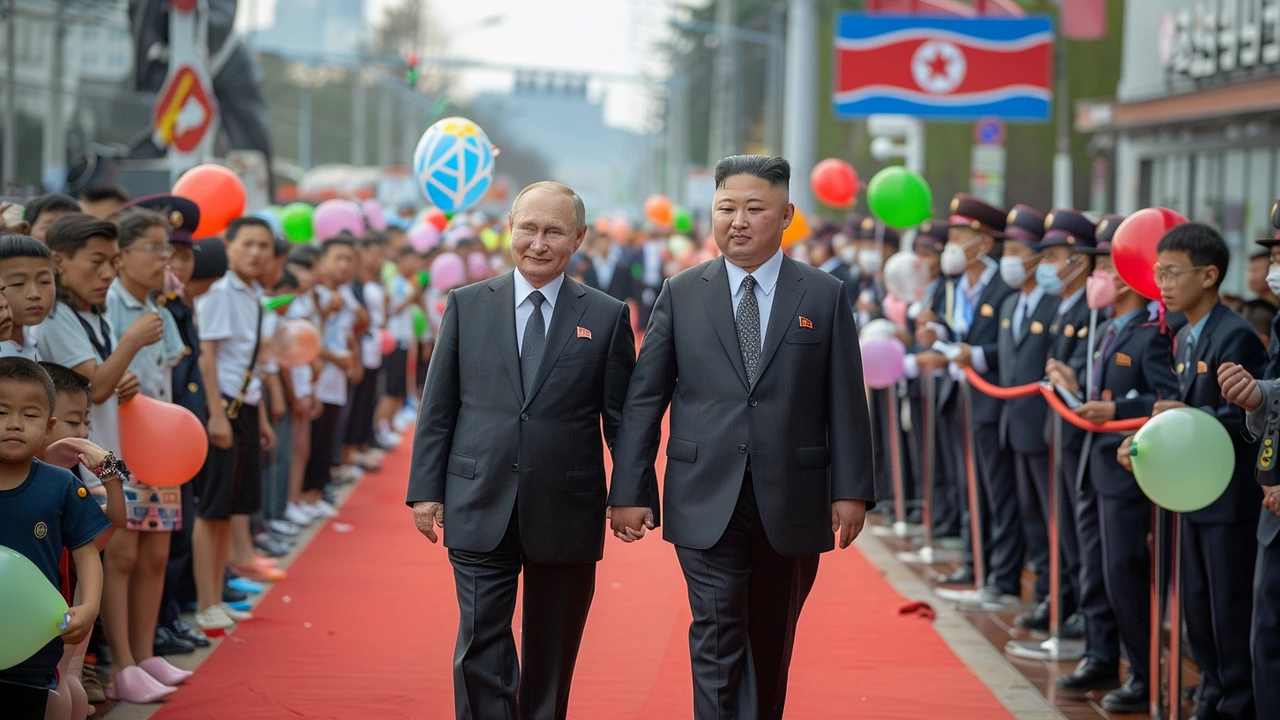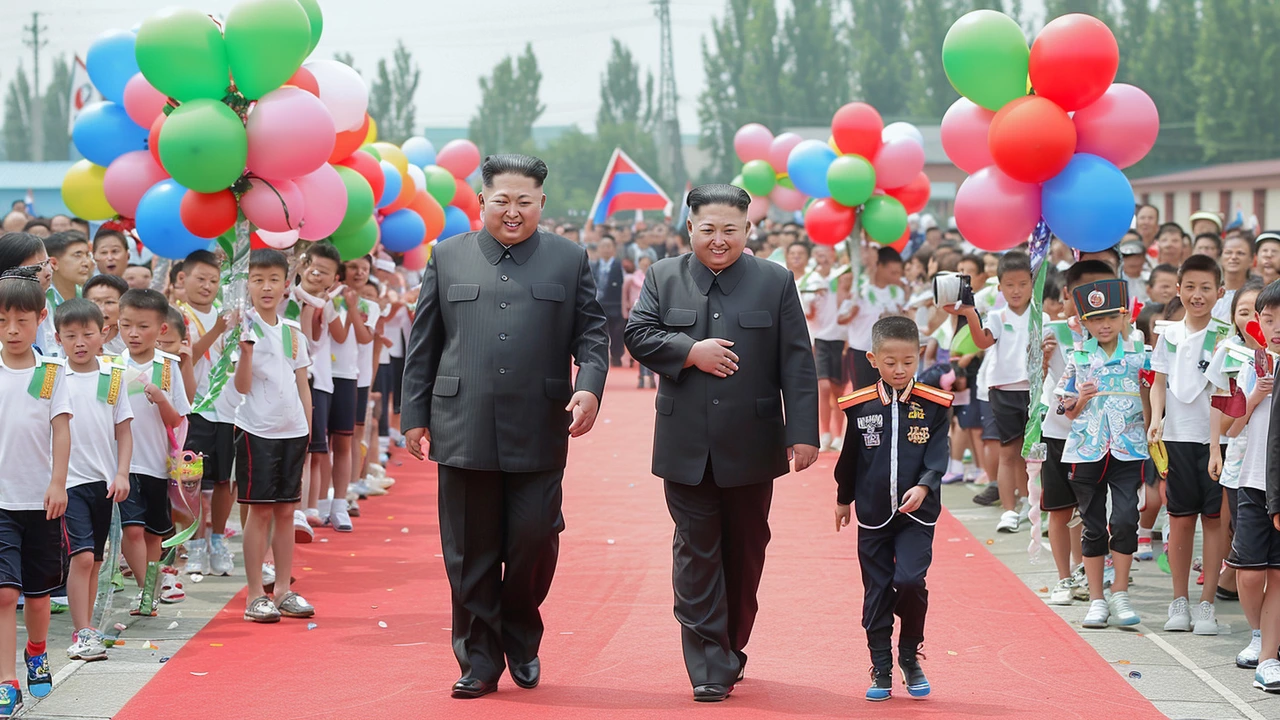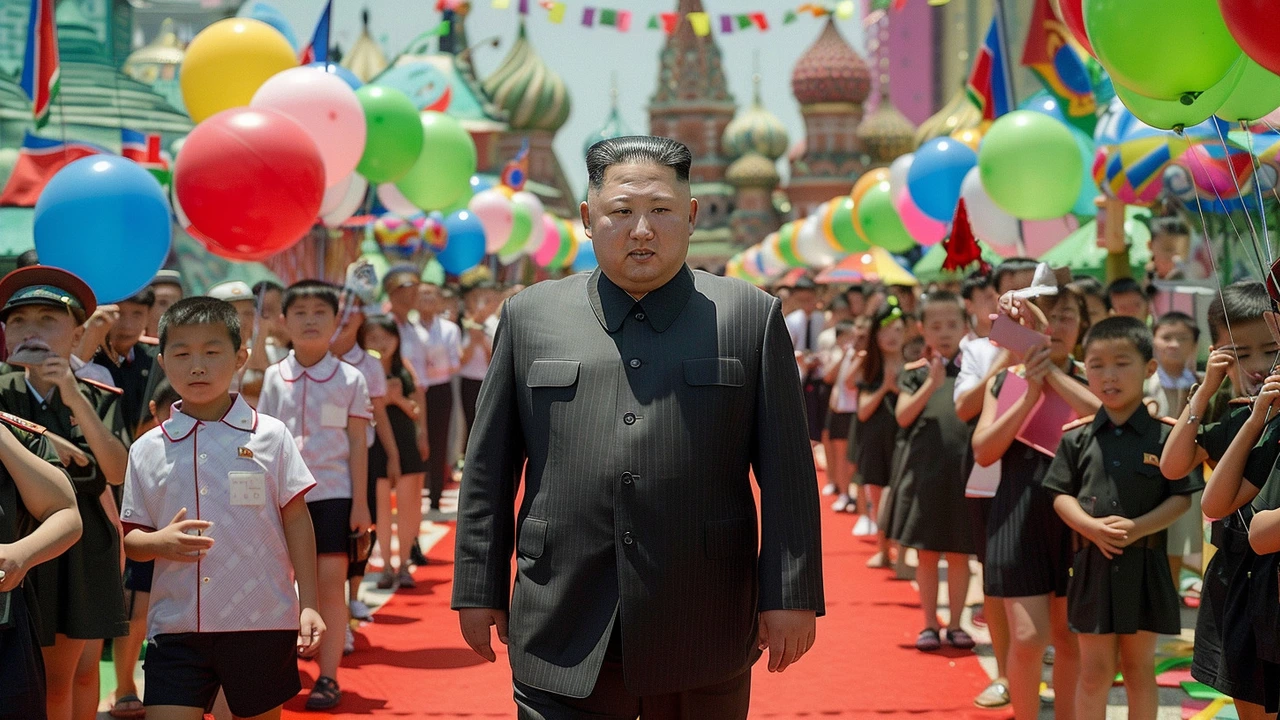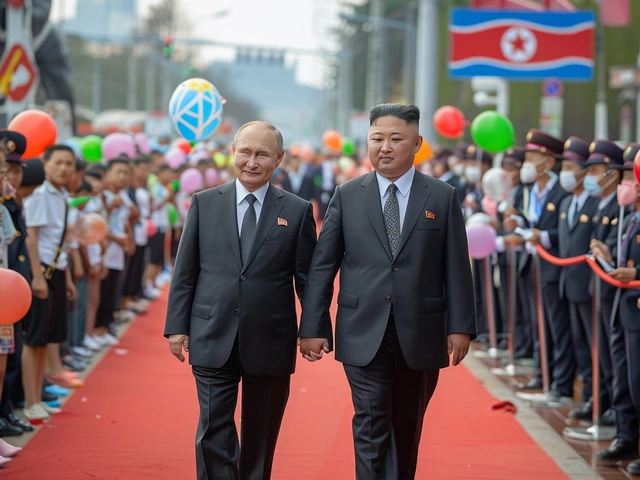

Putin in Pyongyang: A Historic Moment
In a significant development, Russian President Vladimir Putin has arrived in Pyongyang for his first visit to North Korea in over two decades. His arrival marks a monumental moment in the evolving ties between Russia and North Korea. This visit is seen as a pivotal step in solidifying the relationship between the two nations, which has seen substantial growth, particularly since the outset of the conflict in Ukraine.
Upon his arrival, Putin was greeted with great fanfare by North Korean leader Kim Jong-un. The atmosphere was electrifying, with both leaders showcasing their commitment to a burgeoning alliance. The meeting between Putin and Kim is not merely a diplomatic gesture; it represents a strategic realignment that could have far-reaching implications on the global stage.
A Strengthening Alliance
While the visit is momentous on its own, it also serves as a culmination of the growing partnership between North Korea and Russia. In the backdrop of Putin's invasion of Ukraine in 2022, North Korea has been a steadfast supporter of Russia's military operations. This has been a mutually beneficial relationship, with North Korea allegedly providing arms to Russia in exchange for vital resources such as food, energy assistance, and support in its space endeavors.
Putin's visit further underscores the strong bond between the nations. In an article published in North Korea's leading newspaper, Rodong Sinmun, the Russian president expressed his gratitude for North Korea's unwavering support. He also lauded Kim Jong-un's resilience in the face of United Nations Security Council sanctions aimed at curbing North Korea's nuclear ambitions.

International Concerns
The visit has not gone unnoticed on the global stage. The United States has expressed significant concern over the potential security implications that this strengthened alliance might pose. The Korean peninsula has already been a hotbed of heightened tensions, with recent border skirmishes only adding to the unease. Putin's visit could exacerbate these tensions, with repercussions that may extend beyond the region.
NATO's Secretary-General, Jens Stoltenberg, has also weighed in, suggesting that Putin's trip to North Korea highlights his increasing reliance on authoritarian leaders. This comes at a time when Russia is scrutinized for its actions in Ukraine, and the strengthening bond between Moscow and Pyongyang adds another layer of complexity to the international political dynamics.
Regional and Global Implications
Additionally, the visit occurs amid a slew of other significant events. In Kyiv, a prominent Kazakh opposition figure, Andos Sadykov, was gravely injured in an assassination attempt. This incident has raised concerns about the security situation in Ukraine. Furthermore, Ukrainian officials have begun preparations for a second peace summit, signaling ongoing efforts to find a resolution to the conflict.
In a related development, Ukraine has taken responsibility for an overnight drone attack on an oil facility in Russia's Rostov region. This was accompanied by accusations that Russian forces had beheaded a Ukrainian serviceman in the eastern Donetsk region. These events underscore the broader complications that Putin's visit to North Korea might entail.

Looking Forward
As Putin's historic visit unfolds, it prompts several critical questions. What will be the long-term impact of the strengthened relationship between Russia and North Korea? How will this alliance influence global geopolitical equations? And importantly, what will be the security ramifications for regions already embroiled in tensions, such as Ukraine and the Korean peninsula?
The answers to these questions remain to be seen, but one thing is clear: The meeting between Putin and Kim is a significant chapter in the geopolitical narrative of our time. As the world watches closely, the unfolding events will undoubtedly shape global politics in the months and years to come.

Send Comment